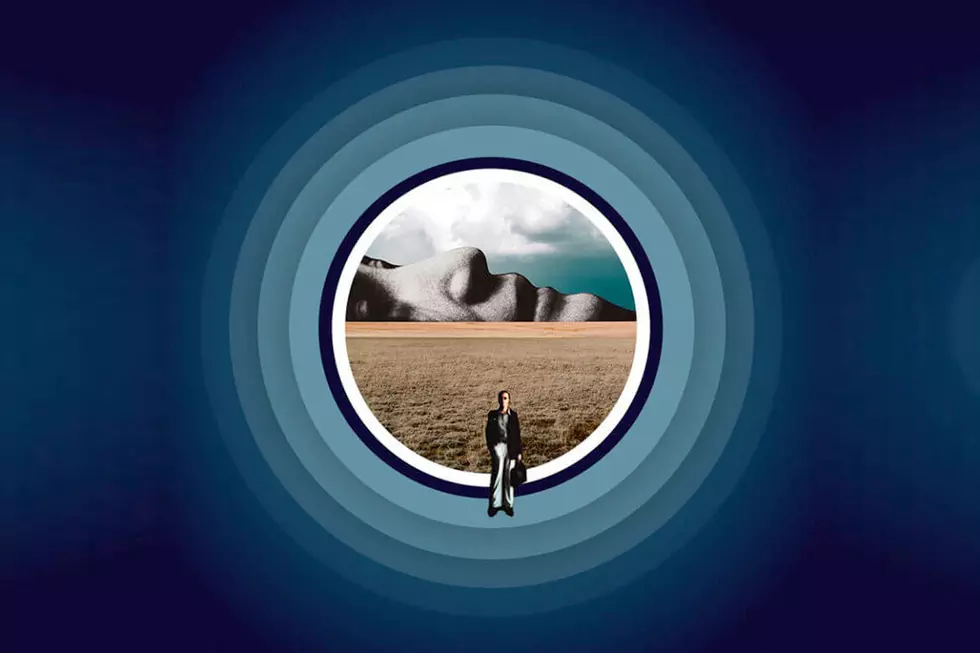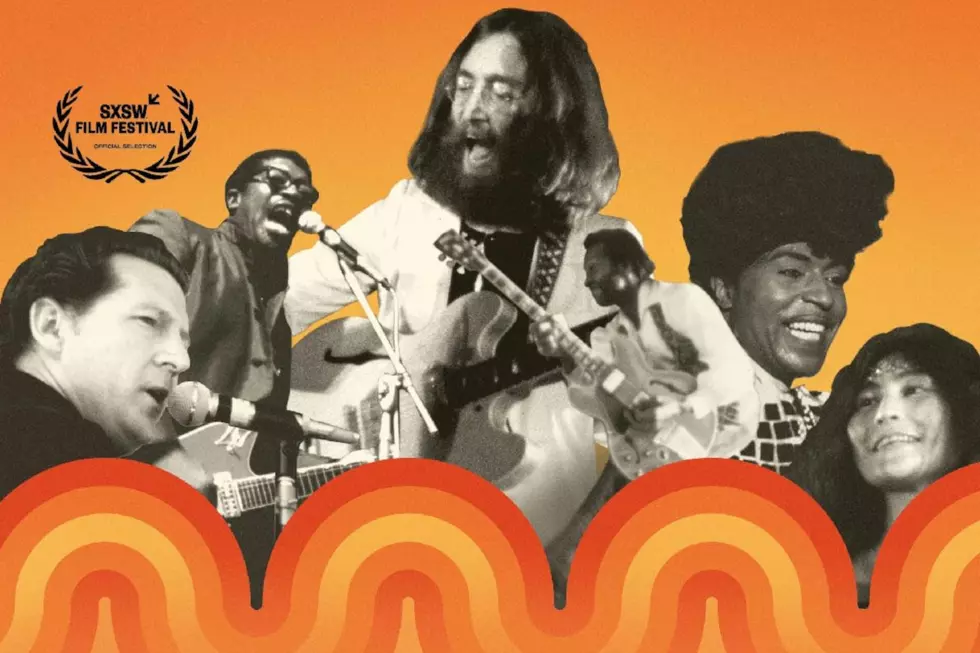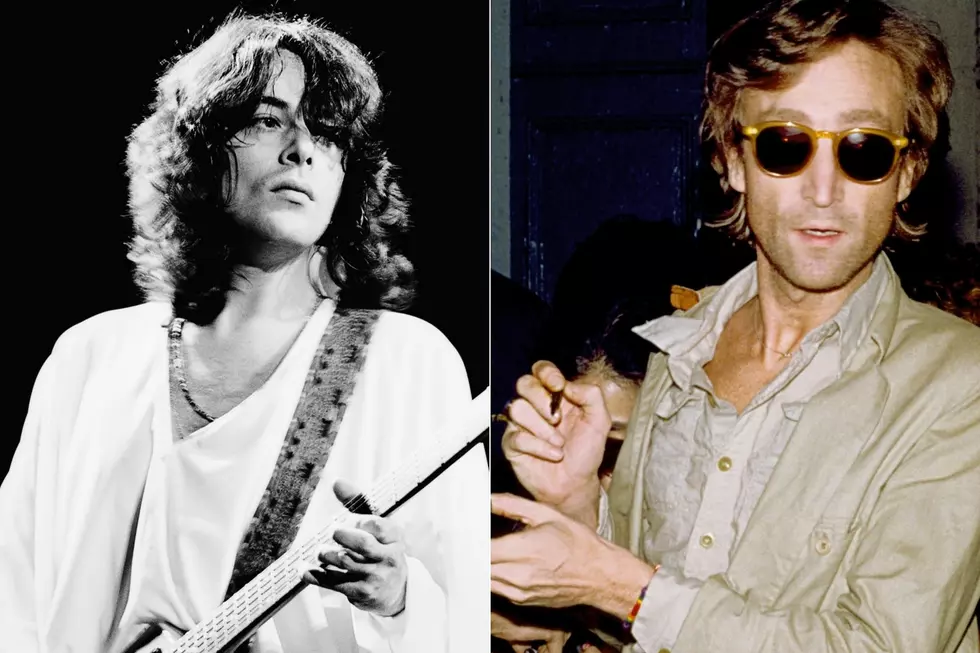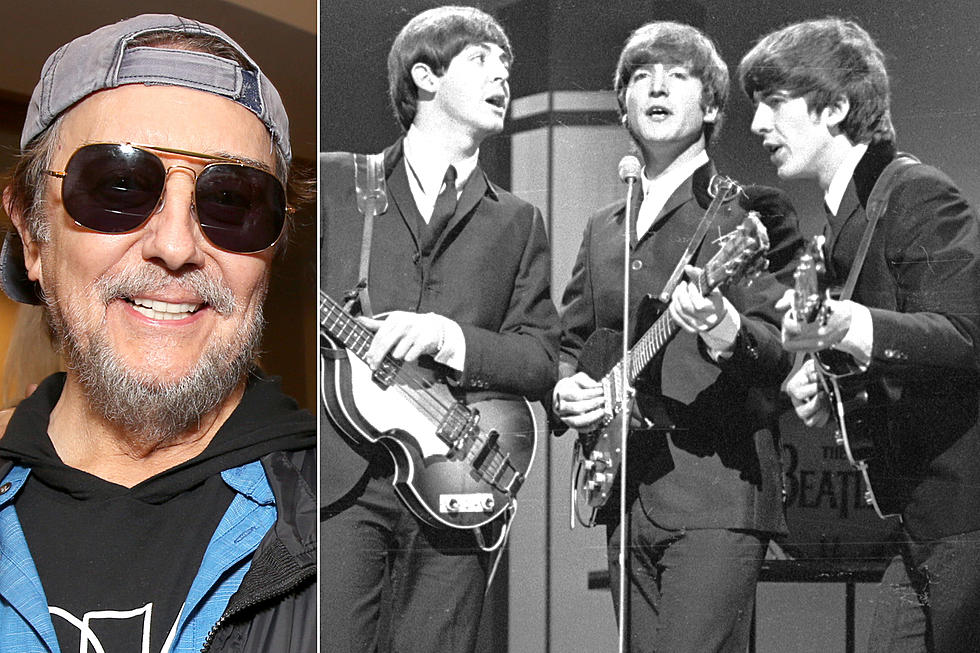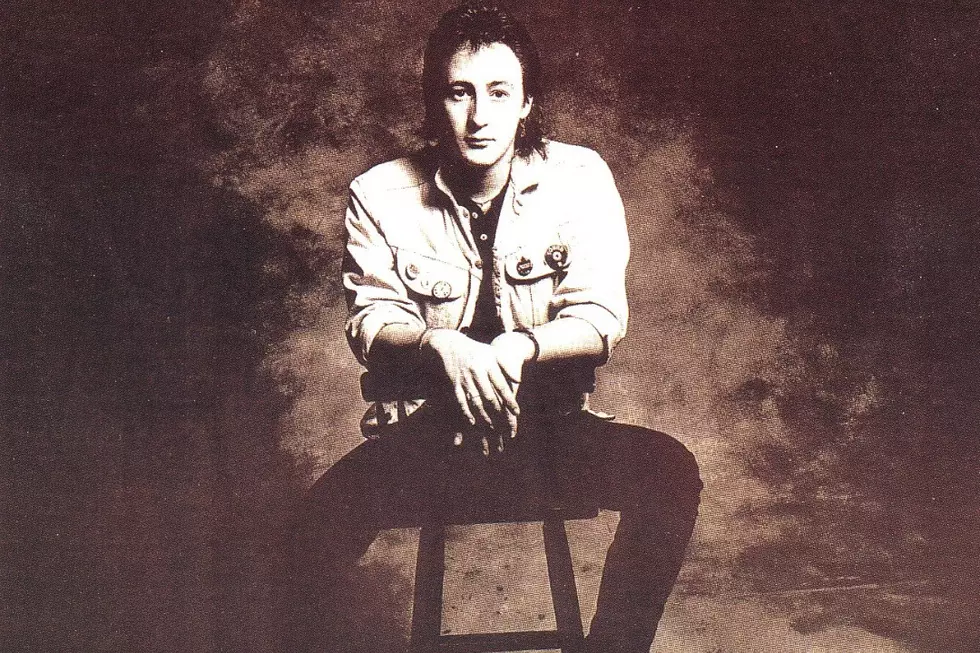
When Julian Lennon Joined the Family Business with ‘Valotte’
John Lennon's eldest son, Julian, had to know he'd be faced with a lot of unfair comparisons when he decided to start his own recording career: Following in a parent's professional footsteps can always be tricky, and that goes at least double when the parent in question was a beloved public figure whose life ended in a heartbreaking act of senseless violence.
With his debut album, Valotte, however, Julian proved he was more than just a famous surname.
In fact, according to Lennon lore, Julian sent his first series of demos out anonymously, thus acquiring the interest of Charisma Records boss Tony Stratton-Smith purely on the strength of his work. It makes for a great story – and it's probably exactly what anyone else would do if they were trying to establish themselves apart from a famous parent.
Even if it's true, that somewhat disingenuously skirts the issue that would ultimately dog Valotte along with each subsequent Julian Lennon record: Vocally and melodically, he can't help but sound a lot like his dad.
"It's not a conscious effort to sing like that. When you sing, you sing," Julian protested in a 1986 interview with Creem. "It's not like I'm like -- what do you call those guys who mimic people? Whatever comes out, comes out. Especially for the first album: That's when I really started singing, so there's no way I knew how to mimic anybody. It was just what came natural."
Regardless, with John Lennon's murder still less than five years in the past – and his last posthumous solo hit, "Nobody Told Me," having hit the Top 10 on both sides of the Atlantic earlier in 1984 – Julian quickly found himself besieged by fans and critics who either thought he sounded too much or not enough like John. Selling two million copies of your first album, as Julian eventually did with Valotte, can be a bewildering experience even under the best of circumstances; for Lennon, who was only 21 at the time, it must have been particularly discombobulating.
Watch Julian Lennon Perform 'Too Late For Goodbyes'
It also didn't help that, while it was public knowledge that John had left Julian's mother Cynthia for Yoko Ono when he was a young boy – and that they hadn't always enjoyed a particularly close relationship – many chose to believe he was little more than an idly wealthy kid trading on his family connections to record a vanity album between cashing trust fund checks, no matter how earnestly (and delicately) he tried to point out that it wasn't true.
"No, I didn't," Lennon told an incredulous Melody Maker in 1984 when asked if he had a lot of money growing up. "Still haven't – never have had. I've had as much as anyone else." In fact, Lennon added, while he stood to eventually inherit part of a trust, he and his mother had "been scraping around in flats ever since the word go."
Whatever Lennon's personal financial situation, no scraping sounds were heard in the grooves of Valotte, which was recorded over several months in 1984 in some of the finest studios around, including Muscle Shoals and the Hit Factory. At the helm was Phil Ramone, who Lennon had requested after hearing his work for Billy Joel, and a number of session ringers were drafted for the sessions, including bassist Marcus Miller, percussionist Ralph MacDonald, and legendary harmonica player Toots Thielemans, who contributed the chirping hook on the album's biggest single, "Too Late for Goodbyes."
Lennon's label, Atlantic Records, seemed to treat him like a prestige artist all the way around, even hiring director Sam Peckinpah to shoot the "Too Late for Goodbyes" video, and at least initially, their efforts paid off: Valotte peaked in the Top 20 in the U.S. and the U.K., spinning off singles to pop, rock, dance, and adult contemporary formats while Lennon took to the road for his first tour. If the reviews were occasionally dismissive, the public seemed more than willing to embrace Julian as an artist in his own right.
As can so often be the case with young artists who achieve early success, however, that momentum proved difficult to sustain over subsequent releases. Lennon's second release, 1986's The Secret Value of Daydreaming, marked a commercial step down from its predecessor, followed by a steep tumble down the charts for 1989's Mr. Jordan and 1991's Help Yourself. That represented a doubly frustrating decline because it found him losing audience interest and label support just as he started coming into his own as a singer/songwriter – an evolution evidenced by lovely later singles like 1991's "Saltwater").
Looking back, it was a problem Lennon saw developing as early as Valotte. "When the reviews came in and the criticism came in, it was obvious where other people's minds were at as far as I was concerned. People obviously had their own visions or opinions of me that stuck," he admitted in a 1991 interview. "And it's not that I felt I was living under somebody's shadow, but I believe that the press – and, to a degree, the public, because of the press – had created a shadow for me to live under and it was hard to ignore."
Listen to Julian Lennon Perform 'Valotte'
In the years following Help Yourself, Lennon largely gave up that fight, choosing to pursue other projects (including a growing focus on charitable work) while entering the studio more sporadically. Photograph Smile, his fifth album, took seven years to finish. That became the new normal: Everything Changes, his sixth, didn't arrive until 2011.
"Yes, I have had a few knock-backs – too many to mention. Pulling myself back up on the horse, time and time again, over many years, has been tough," he admitted in 2013. "I have been close to quitting on numerous occasions, especially when after the release of an album the comparisons begin without people having even listened to it."
Still, as he noted in a separate interview, Julian refused to to turn his back on music. "It never goes away, really. But also I get restless if I just do the same thing all the time. My mind wanders too much," he offered in response to a question about his long delays between albums.
"Slowly but surely, after extensive periods of time away from music, it tends to all flood back," Julian added. "Then it’s a question of working with those ideas."
And if Julian Lennon never hits the commercial or creative heights attained by his father, he's long since made his peace with that. "I think everybody should earn their own way in life," he mused during a radio special after Valotte was released. "I mean, if anything is going to come out of anything later, that's fine, but I think at least you should really get out there and have a go for yourself. In the end, success is much more sweeter that way. You're actually proud of what you've done. You had to do it to gain whatever you got from it, you know."
Beatles Solo Albums Ranked
More From Ultimate Classic Rock





